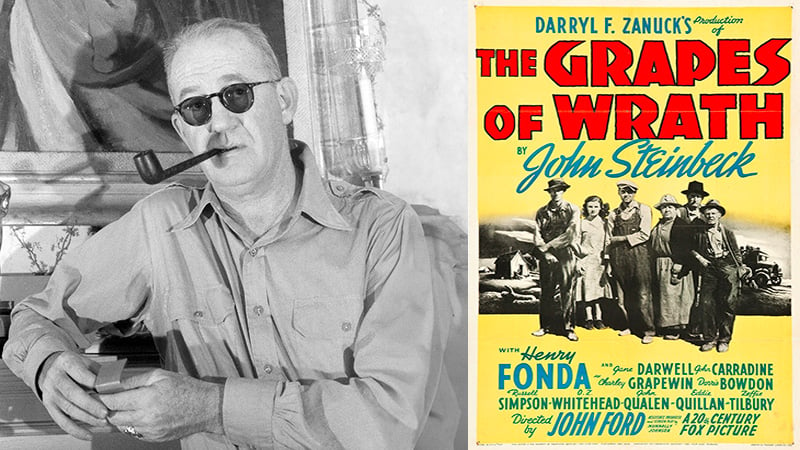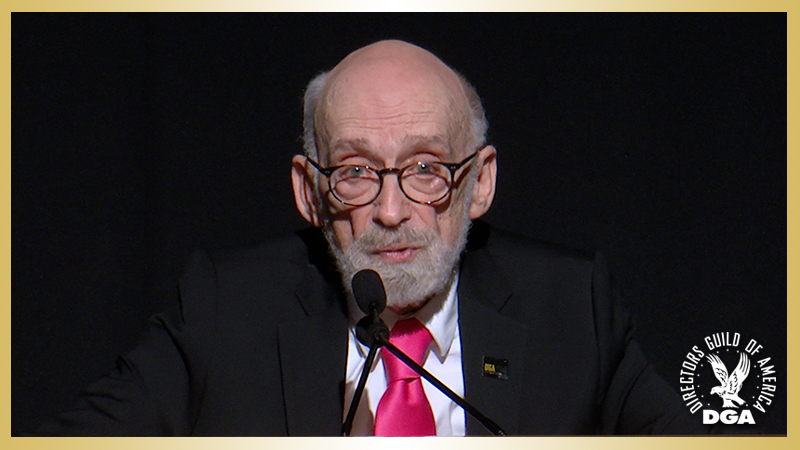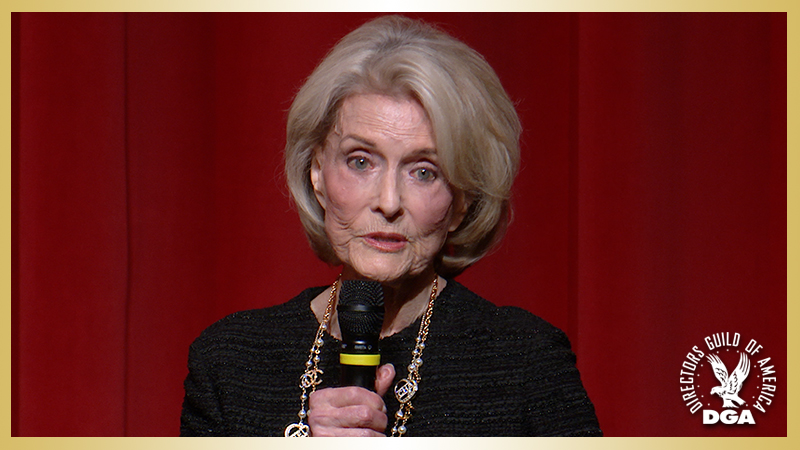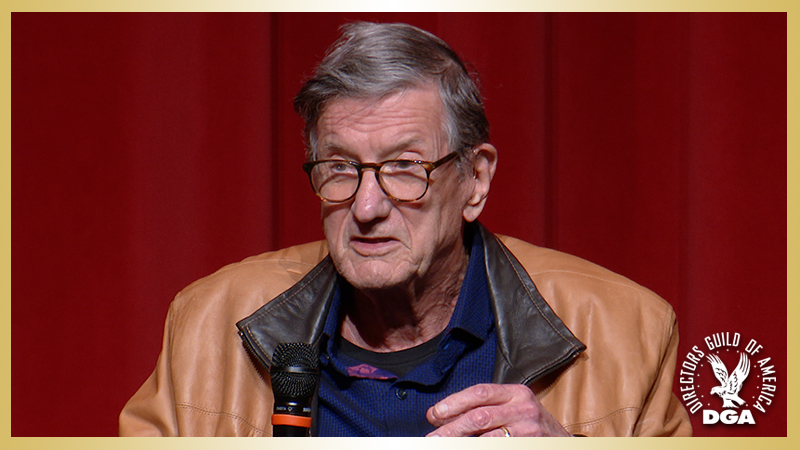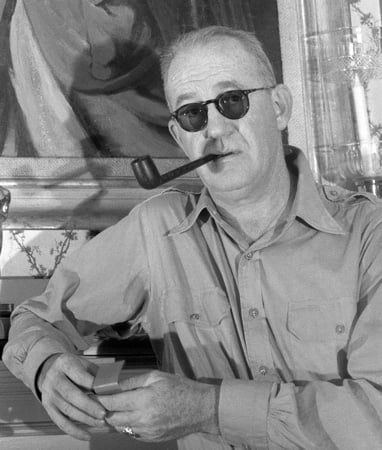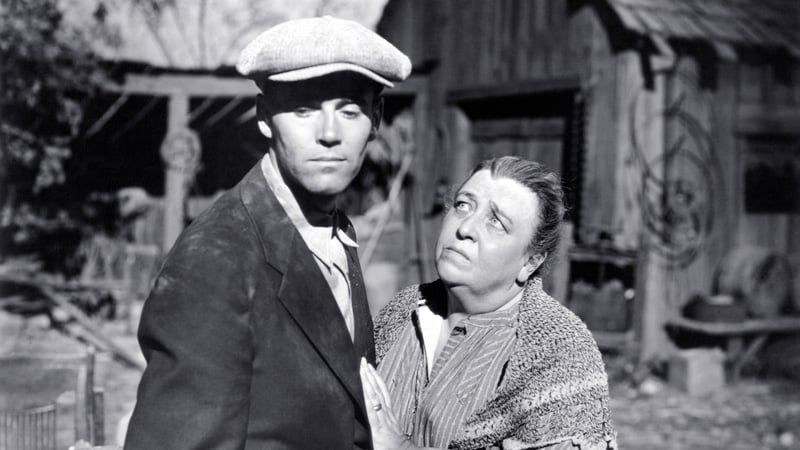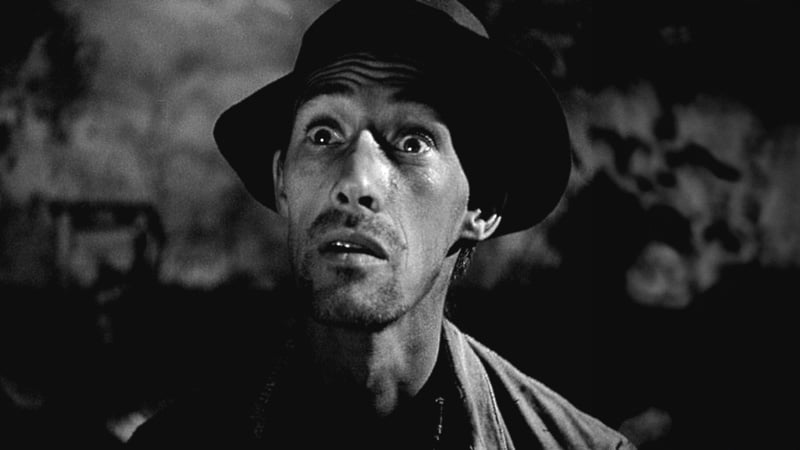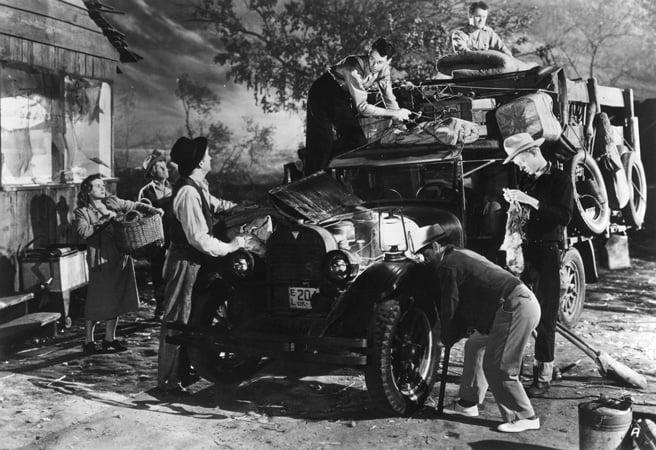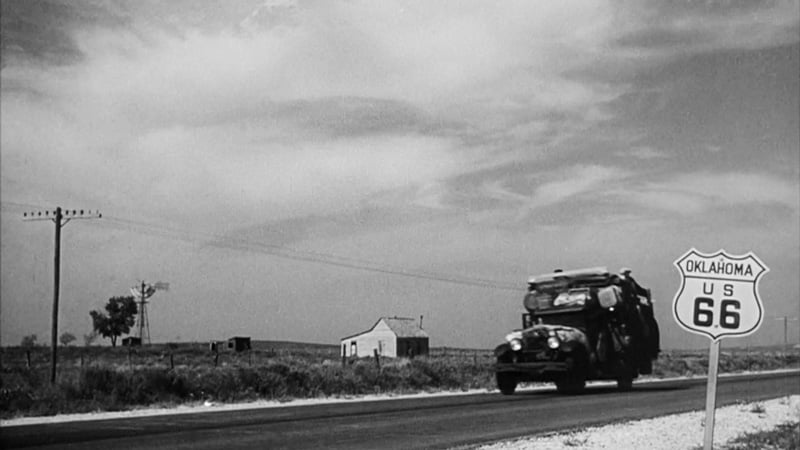On May 22, the Special Projects Committee hosted their Classic Films Series debut with John Ford’s 1940 feature, The Grapes of Wrath. The new series will screen iconic movies, often followed by a discussion about the Director's contribution to the world of cinema.
The evening opened with a welcome from Special Projects Classic Film Series Subcommittee Chair Arthur Allan Seidelman who spoke about the new film series and about the impact of Director John Ford, who was known to direct films that told stories about a quintessential American theme, the search for a hero.
“A hero standing tall and alone against the uncompromising universe,” said Seidelman. “The lone figure walking down the road. Or a silhouette on the horizon, striding forward with courage toward an unforeseen goal. Those were his symbols. Those were his key figures. The delicacy of John Ford’s work is no more apparent than in The Grapes of Wrath. Ford focuses our eyes and our hearts on humble souls, revealing the magnificence of their humanity as they struggle to survive. John Ford gave his soul to the motion picture screen and his vision to all of us. Picture the American West or the Dust Bowl and I guarantee you you’ll be seeing through the eyes of John Ford. His vision became our vision.”
Following the screening in the Guild’s Los Angeles Theater, Seidelman moderated a discussion where Director John Badham — who was influenced by Ford’s work — and actress Constance Towers — who worked with Ford on the films The Horse Soldiers and Sergeant Rutledge — discussed his lasting legacy on cinema.
During the conversation, Towers recalled how Ford liked to work and the advice he’d share with other filmmakers. “He was so well prepared. He knew exactly what he was going to shoot and that’s what he shot. And I heard him say many times to other Directors, ‘Don’t get fancy. Let your camera tell the story. And let your actors do the action. And you’ll have a perfect picture.’”
Badham spoke about how Ford’s economy of style showed up in his directing. “He never shot coverage unless it was absolutely necessary. As you saw in the film, these are long masters, where the camera hardly moves, but there’ll be three and four people in a shot with no coverage unless it’s something really important like between Tom and Ma, where they’re having a very intimate conversation.”
Badham also discussed the “strength of vision” Ford’s films communicated to him as a young filmmaker. “He had a great sympathy for the characters. In this case [The Grapes of Wrath], he wasn’t making a political statement, he was telling a story about characters caught in a situation. And he didn’t think of it as political at all. He loved the people and the characters.”
See video from this conversation in the gallery below.
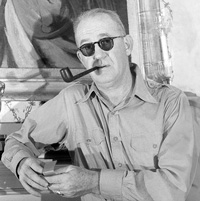 About John Ford
About John Ford
John Martin Feeney (1894-1973), known professionally as John Ford, is regarded as one of the most important and influential filmmakers during the Golden Age of Hollywood and was one of the first American Directors to be recognized as an auteur. During his half century career, he directed over 140 films between 1917 and 1965 and received six Academy Awards including four wins for Best Director for The Informer (1935), The Grapes of Wrath (1940), How Green Was My Valley (1941), and The Quiet Man (1952).
A DGA member since the very founding of the Guild in1936, Ford was elected to 13 terms on the National Board and served as First Vice President from 1950-51 and as Secretary-Treasurer from 1936-38. He also served three terms on the Western Directors Council from 1960-66. He earned DGA Award nominations for his films Mister Roberts (1955), The Long Gray Line (1955), The Searchers (1956) and The Horse Soldiers (1959); and won the Award for The Quiet Man (1952). In 1954 Ford was honored with the DGA Lifetime Achievement Award.
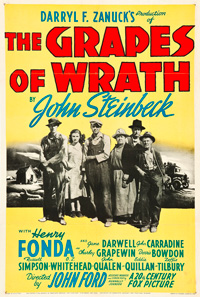 About the Film
About the Film
Based on the iconic novel by John Steinbeck, Director John Ford’s The Grapes of Wrath tells the heartbreaking story of the Joad clan, a family in search of a better life in California after their drought-ridden Oklahoma farm is seized by the bank. Led by their just-paroled son Tom (Henry Fonda), his intrepid mother (Jane Darwell) and Jim Casy (John Carradine), a preacher who has lost his faith, they load up a truck and join the westward migration alongside thousands of other “Okies” driven off their land by the poverty and hopelessness of the Dust Bowl. Their journey is beset by hardship, and they meet other families suffering the misfortunes of the Great Depression and holding onto the same dream. But upon their arrival in California, they soon realize that the promised land isn’t quite what they hoped.
The Grapes of Wrath earned Ford an Academy Award for Best Director and is widely considered to be one of the greatest films of all time. In 1989, it was one of the first 25 films selected by the Library of Congress for preservation in the United States National Film Registry for being “culturally, historically, or aesthetically significant.”
